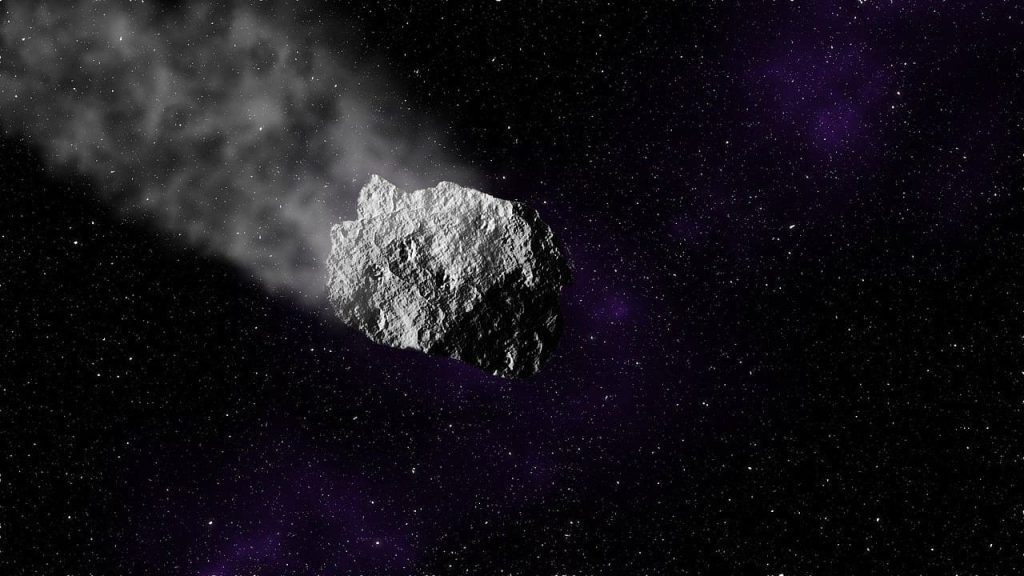
Okay, let’s talk about one of humanity’s greatest fears: a massive asteroid hitting Earth. The kind of scenario that’s so dramatic it belongs in a blockbuster with Bruce Willis saving the day. But what’s the real deal? Should we be binge-watching survival shows on Netflix while building bunkers? Or can we rely on NASA and their brilliant (and maybe slightly sleep-deprived) scientists to keep us safe? Spoiler alert: NASA has some tricks up its sleeve.
The Hollywood Fear: Asteroid Edition
Imagine you’re sipping coffee on a Monday morning when suddenly, BOOM, an asteroid decides it’s time to crash the party. Sounds terrifying, right? Hollywood has certainly done its part to make sure we lose sleep over this. Movies like Armageddon and Don’t Look Up are great at dramatizing the doom, but in real life, things are a little less… cinematic.
First off, let’s give it to NASA. These folks are constantly scanning the skies for anything that could turn our planet into a cosmic piñata. And they’ve got a fancy name for these rocks: Near-Earth Objects (NEOs). Basically, if a rock is big enough to ruin someone’s day and comes uncomfortably close to Earth, NASA is all over it.
NASA’s Anti-Asteroid Superpowers
Now here’s where it gets cool. Remember the DART mission in 2022? That’s when NASA straight-up played cosmic billiards with an asteroid. They sent a spacecraft to smash into Dimorphos (yes, that’s its name) to test if we can change an asteroid’s path. And guess what? It worked. NASA essentially proved we can nudge these space rocks out of the way. High-five for science!
So, if you’re wondering, “What happens if an asteroid is heading straight for us?” The answer is simple: NASA will do its best to punch it in the face. Politely, of course.
Should You Worry About an Asteroid Hitting Earth?
Here’s the thing: the chances of a planet-destroying asteroid hitting Earth are incredibly low. Like, “winning the lottery while being struck by lightning” kind of low. NASA has identified and tracked over 90% of the potentially hazardous asteroids, and none of them are currently on a collision course with Earth.
But, let’s be real. Knowing NASA is on asteroid patrol doesn’t mean we don’t occasionally freak out when headlines scream, “ASTEROID FLYING NEAR EARTH THIS WEEK!” By “near,” they usually mean millions of miles away—like cosmic social distancing.
What If an Asteroid DID Hit Earth?
Okay, hypothetically speaking, let’s say an asteroid does manage to dodge all of NASA’s defenses. What then? It depends on the size. Small ones might burn up in the atmosphere, leaving us with a spectacular meteor shower. Larger ones? Well, those are the ones that cause actual problems. Think massive shockwaves, tsunamis, and a whole lot of “good luck, everyone.”
But hey, let’s not spiral into existential dread here. Instead, appreciate that we live in a time where brilliant people are actively working on saving the planet—while we binge-watch cat videos.
Final Thoughts (and a Little Humor)
So, should you lose sleep over an asteroid hitting Earth? Not really. If NASA is confident enough to spend their time on Mars missions and not asteroid panic, you can relax too. Besides, if the worst ever happens, we can always count on Bruce Willis—or, you know, Elon Musk—to save us.
In the meantime, keep your feet on the ground, your eyes on the skies, and maybe say a little “thank you” to NASA for keeping Earth safe from cosmic chaos.
And hey, if an asteroid does end up being a serious threat, at least we’ll have something to talk about at dinner other than inflation and climate change. Silver linings, right? 🌠

